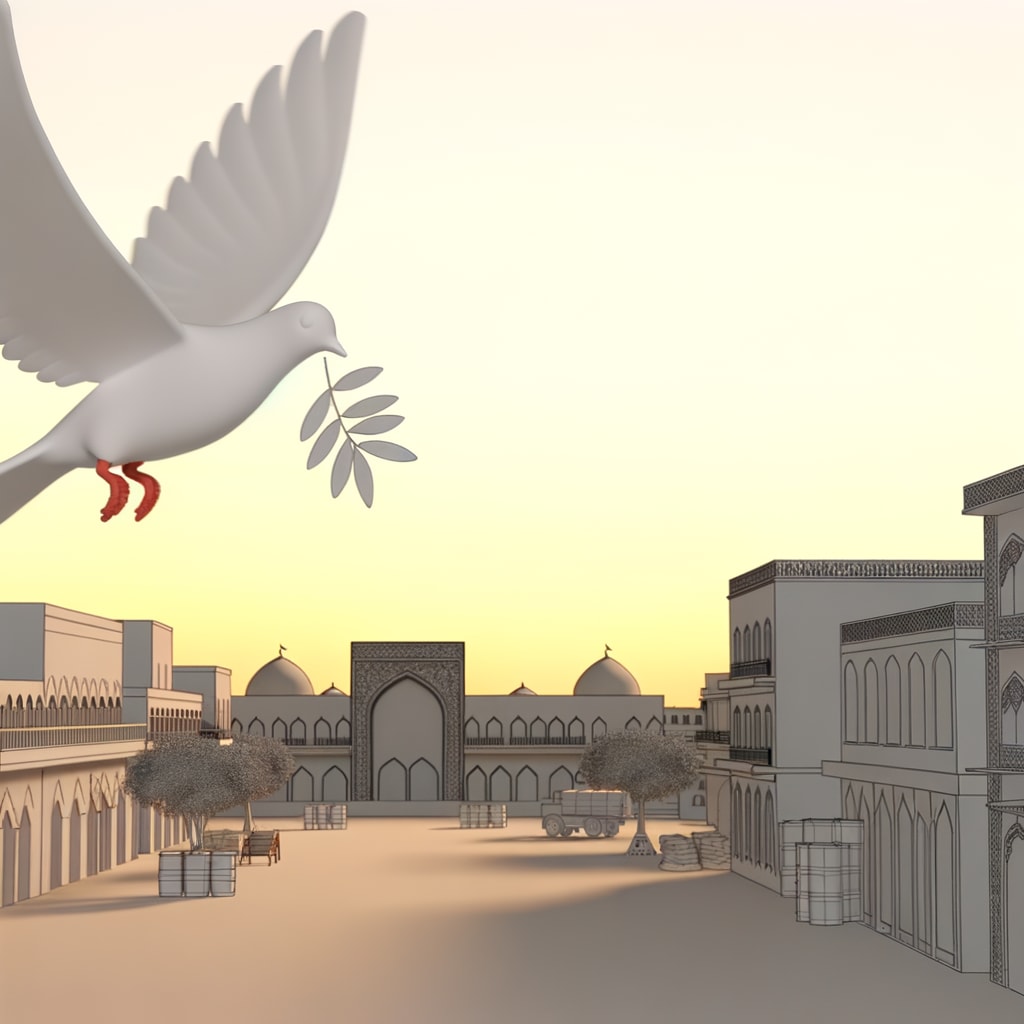Israeli Military Strikes Yemen's Capital, Sanaa, Hitting Houthi Targets
Israel launched multiple airstrikes on the Yemeni capital of Sanaa on Thursday, targeting Iran-backed Houthi group, according to various news sources. The strikes hit an area near the presidential complex and a building in southern Sanaa, causing casualties and damage to infrastructure. However, the Houthi officials have denied Israeli claims of targeting a meeting of senior officials.
Background and Context
Since the war in Gaza began nearly two years ago, Israel has been responding to missile and drone attacks from the Houthi rebels, who claim their actions are in support of the Palestinians. The strikes have become more frequent, with Israel primarily centering its strikes on Yemen's vital infrastructure, including ports, Sanaa International Airport, power stations, and cement factories.
On Sunday, the Israeli army targeted two power plants, one being Haziz, and a fuel depot in the capital Sanaa. This was followed by the most recent attacks on Thursday, which reportedly aimed at Houthi leaders, although this has been refuted by the Houthi officials.
Key Developments
The Israeli Defense Forces (IDF) stated that it struck several targets in the capital Sanaa, including the presidential palace, Adar and Hizaz power plants, and a site for storing fuel, in response to Houthi missile attacks. The IDF's statement came after Houthi leader Abdul-Malik al-Houthi announced that the group began producing multiple warhead missiles. However, the outcome of the strike is not immediately known, and it is unclear whether Houthi chief of staff, Muhammad Al-Ghamari, was present at the time of the attack.
A senior Houthi leader condemned the Israeli air raids on Sanaa, alleging that they hit densely populated neighborhoods and civilian sites, calling the strikes a war crime
. He added that Houthi forces still have military options
yet to be deployed.
Implications and Reactions
The airstrikes have led to significant casualties and damage. Houthi health authorities reported at least six people killed and 86 injured in the strikes. The Iran-backed group controls much of western Yemen, including the capital.
Yemen's Houthis have denied Israeli media claims that an Israeli air strike targeted a meeting of senior officials in the capital Sanaa. Field Marshal Mahdi al-Mashat, president of the Supreme Political Council, later warned Israeli Prime Minister Benjamin Netanyahu, stating that Yemen's long arm will teach [Israel] the necessary lesson
.
Conclusion
The situation remains tense as the Israeli military strikes continue in Yemen. The Houthi group denies that the strikes are targeted at their leadership and accuses Israel of attacking civilian life and vital infrastructure. The conflict continues to escalate, causing significant damage and loss of life, with the international community closely monitoring the situation.

